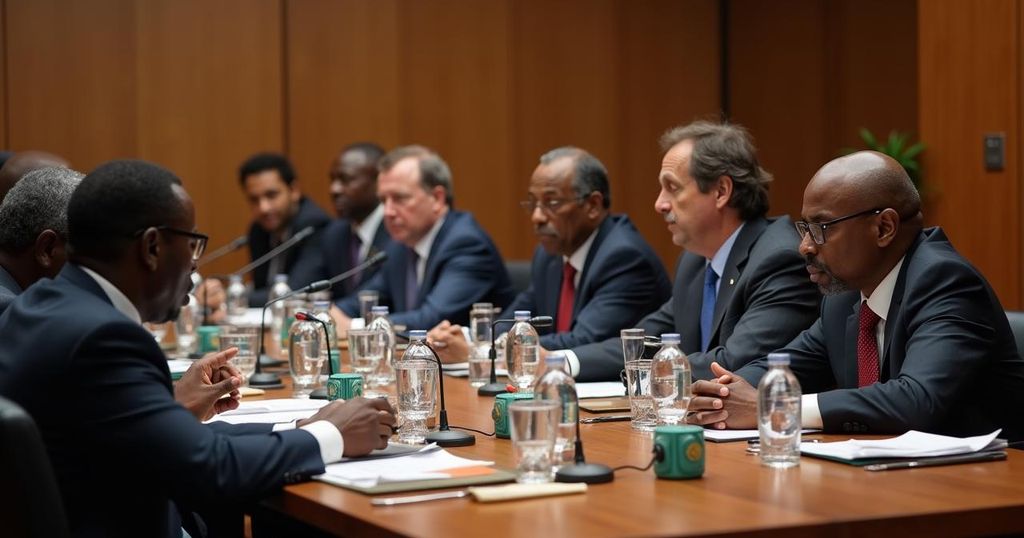Call to Action: Ensuring South Sudan’s Political Future Through the R-ARCSS Implementation

The CEPO has urged the Presidency of South Sudan to ensure the implementation of the R-ARCSS during the transitional government’s two-year extension. CEPO Executive Director, Mr. Edmund Yakani, expressed concerns regarding the likelihood of credible elections in December 2026 if the Presidency does not engage effectively. He highlighted the detrimental influence of individuals with personal agendas and asserted that CEPO will oversee the performance of the Presidency during this period.
The Community Empowerment for Progress Organization (CEPO) has called upon the Presidency of South Sudan to ensure the effective implementation of the outstanding tasks prescribed by the Revitalized Agreement on the Resolution of the Conflict in the Republic of South Sudan (R-ARCSS). CEPO’s Executive Director, Mr. Edmund Yakani, emphasized the necessity for the Presidency to allocate adequate and timely financial resources for the operationalization of the R-ARCSS mechanisms, particularly during the newly extended two-year transitional government period. Mr. Yakani articulated concerns regarding the potential lack of progress, stating that if the Presidency continues to function as it has over the previous six years, the likelihood of conducting credible, free, fair, and peaceful elections by December 2026 remains exceedingly slim. He insisted that it is imperative for the Presidency to affirm its commitment to fulfilling its principal responsibilities, which include convening regular meetings to facilitate the genuine execution of the remaining R-ARCSS components. Moreover, Mr. Yakani raised alarms about the influence of self-serving individuals within the Presidency potentially obstructing progress on critical R-ARCSS chapters. CEPO plans to actively monitor the Presidency’s actions during the forthcoming two years of the transitional government, particularly in identifying officials who are uncommitted to the full implementation of the R-ARCSS. Initially, South Sudan was slated to hold its first General Election in December of this year; however, this event has been postponed until December 2026 due to insufficient preparedness. International observers have expressed increasing frustration with the political leadership in South Sudan, attributing the delays and obstacles to the ongoing discord between President Salva Kiir and First Vice President Riek Machar, which continues to hinder electoral progress.
This article addresses the pressing issues surrounding the political stability and electoral processes in South Sudan, particularly with respect to the Revitalized Agreement on the Resolution of the Conflict (R-ARCSS). The R-ARCSS was established to facilitate peace and governance in South Sudan following years of civil conflict. However, the agreement’s successful execution has been marred by internal political strife, particularly between significant figures in government. The postponement of the General Election signifies broader concerns regarding the readiness of the political landscape in South Sudan.
In summary, the Community Empowerment for Progress Organization has urgently requested that the Presidency of South Sudan undertake decisive measures to ensure the implementation of the R-ARCSS in the extended transitional period. With the delay of the elections to December 2026, the time for substantial governmental action is critical to facilitate a stable political environment essential for credible elections. Monitoring by CEPO and international observers will be crucial to assess the intentions and actions of the current leadership in achieving substantial progress.
Original Source: www.radiotamazuj.org








